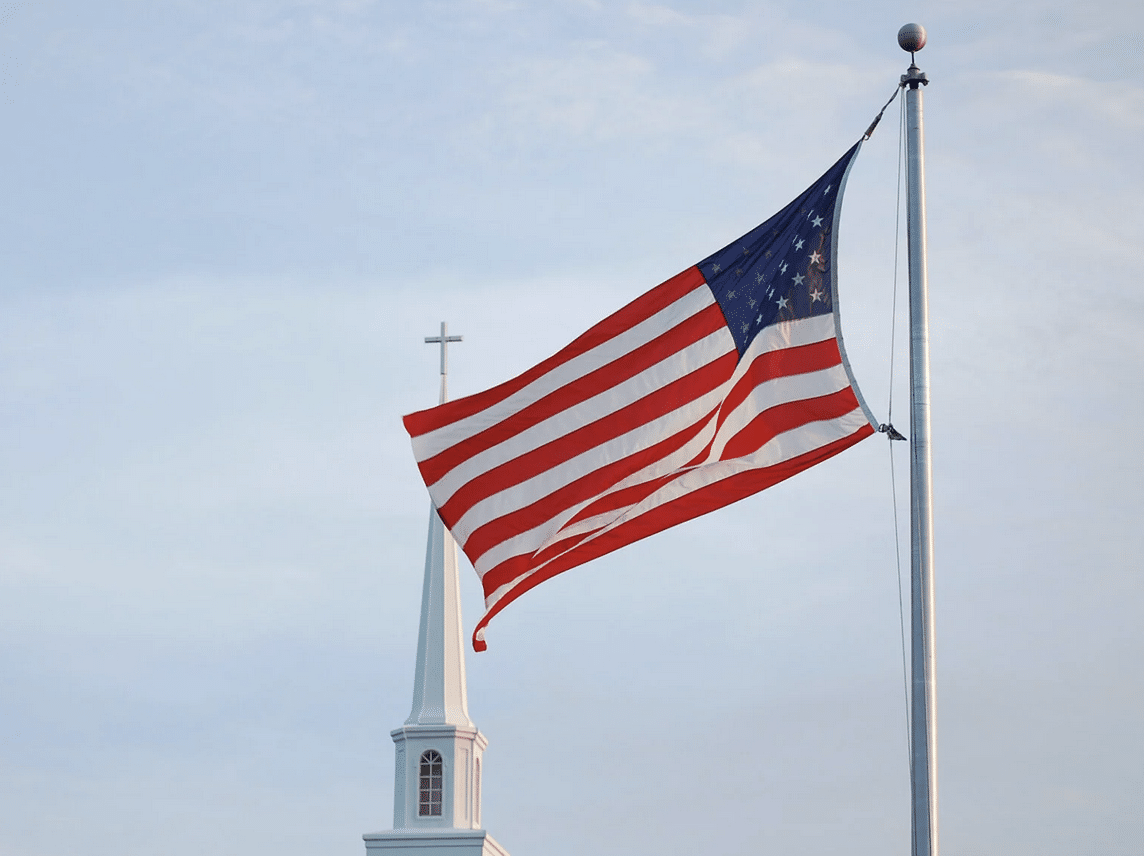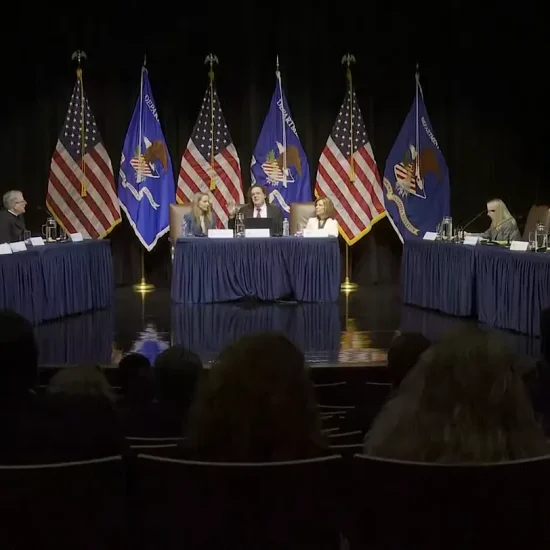

Photo by Brad Dodson/Unsplash/Creative Commons
(RNS) — Forty-five percent of Americans believe the U.S. should be a “Christian nation,” one of several striking findings from a sweeping new Pew Research Center survey examining Christian nationalism.
But researchers say respondents differed greatly when it came to outlining what a Christian nation should look like, suggesting a wide spectrum of beliefs.
“There are a lot of Americans — 45% — who tell us they think the United States should be a Christian nation. That is a lot of people,” Greg Smith, one of the lead authors of the survey, said in an interview. “(But) what people mean when they say they think the U.S. should be a Christian nation is really quite nuanced.”
The findings, unveiled Thursday (Oct. 27), come as Christian nationalism has become a trending topic in midterm election campaigns, with extremists and even members of Congress such as Georgia Republican Rep. Marjorie Taylor Greene identifying with the term and others, such as Rep. Lauren Boebert of Colorado and Pennsylvania Republican gubernatorial candidate Doug Mastriano, expressing open hostility to the separation of church and state. In the road show known as the ReAwaken America Tour, unapologetically Christian nationalist leaders crisscross the country spouting conspiracy theories and baptizing people.

“More than four-in-ten U.S. adults say the country should be a ‘Christian nation,’ but far fewer want churches to endorse candidates, speak out on politics” Graphic courtesy of Pew Research Center
Pew’s findings suggest the recent surge in attention paid to Christian nationalism has had an effect on Americans, although some suggested politicians may be staking out positions to the right of those who merely say America should be a “Christian nation.”
“I used to think it was a positive view, but now with the MAGA crowd, I view it as racist, homophobic, anti-woman,” read one response to the question, according to the report.
According to the survey, which was conducted in September, 60% of Americans believe the U.S. was originally intended to be a Christian nation, but only 33% say it remains so today. Most (67%) say churches and other houses of worship should keep out of political matters, with only 31% endorsing faith groups’ expressing views on social and political issues.
Even those who believe America should be a Christian nation generally avoided hard-line positions. Most of this group (52%) said the government should never declare any particular faith the official state religion. Only 28% said they wanted Christianity recognized as the country’s official faith. Similarly, 52% said the government should advocate for moral values shared by several religions, compared with 24% who said it should advocate for Christian values alone.
But the pro-Christian America group was more split on the separation of church and state: 39% said the principle should be enforced, whereas 31% said the government should abandon it. An additional 30% disliked either option, refused to say or didn’t know.
Most in the group (54%) also said that if the Bible and U.S. laws conflict, Scripture should have more influence than the will of the people.

“Among those who want U.S. to be a ‘Christian nation,’ upward of half say Bible should influence U.S. laws and take precedence over the will of the people” Graphic courtesy of Pew Research Center
Smith stressed that some respondents who expressed support for a Christian nation “do mean that they think Christian beliefs, values and morality ought to be reflected in U.S. laws and policies.” But many respondents “tell us that they think the U.S. should be guided by Christian principles in a general way, but they don’t mean that we should live in a theocracy,” he said. “They don’t mean that they want to get rid of separation of church and state. They don’t mean they want to see the U.S. officially declared to be a Christian nation. It’s a nuanced picture.”
Among U.S. adults overall, only a small subset believe the U.S. government should declare Christianity the national faith (15%), advocate for Christian values (13%) or stop enforcing the separation of church and state (19%).
Partisanship strongly shaped the responses, with those who are Republican or lean toward the GOP far more likely to say America should be a Christian nation (67%) than Democrats or Democratic leaners (29%). Republicans were also significantly more likely to say the founders intended the country to be a Christian nation (76%), although nearly half of Democrats agreed (47%).
These divisions appear to reflect national political trends. While Democratic lawmakers — especially members of the Congressional Freethought Caucus — have voiced concerns about Christian nationalism’s role in the Jan. 6, 2021, attack on the Capitol, many congressional Republicans have declined to condemn the ideology, with only a small number affirming support for the separation of church and state.
The outsized presence of white evangelicals in the GOP may play a role. In Pew’s survey, white evangelicals were the faith group most likely to say America should be a Christian nation (81%). But they were followed by Black Protestants (65%), a heavily Democratic group. White nonevangelical Protestants were more split, with 54% agreeing the U.S. should be a Christian nation.
Catholics were the only major Christian group where a majority did not express support of the idea (47%) of a Christian nation, though they were split along racial lines: Most white Catholics (56%) agreed America should be a Christian nation, while Hispanic Catholics were the least likely of any Christian group to say the same (36%).
Few Jewish (16%) or religiously unaffiliated Americans (17%) thought the U.S. should be a Christian nation, followed by an even smaller subset of atheists and agnostics (7%).
Age is also a factor. Among Americans ages 65 or older, 63% said America should be a Christian nation, compared with 23% of 18- to 29-year-olds.
Pew asked half of respondents to define a “Christian nation” in their own words and used their open-ended answers to group most people into three categories: those who see it as general guidance of Christian beliefs and values in society (34%); those who see it as being guided by beliefs and values, but without specifically referencing God or Christian concepts (12%); and those who see it as having Christian-based laws and governance (18%).
Those who think the U.S. should not be a Christian nation were more likely to describe a Christian nation as having Christian-based laws and governance (30%) than did those who believe it should be (6%).
The survey polled the other half of respondents about their views on Christian nationalism. Among all U.S. adults, fewer than half (45%) said they had heard anything about the term. Non-Christians were more likely than Christians overall to have heard or read anything about Christian nationalism (55% vs. 40%), and Democrats were more likely to express familiarity than Republicans (55% vs. 37%).
But researchers noted that while 54% of those surveyed said they hadn’t heard of Christian nationalism, respondents overall were far more likely to view the concept unfavorably (24%) than favorably (5%), suggesting that people familiar with the concept generally view it negatively.






